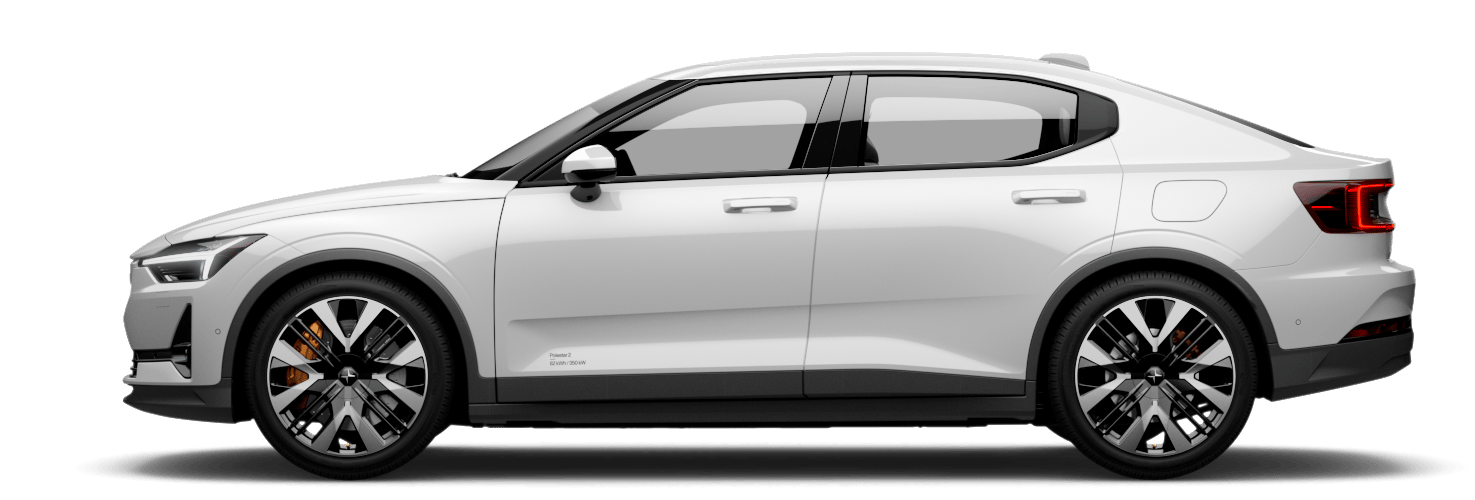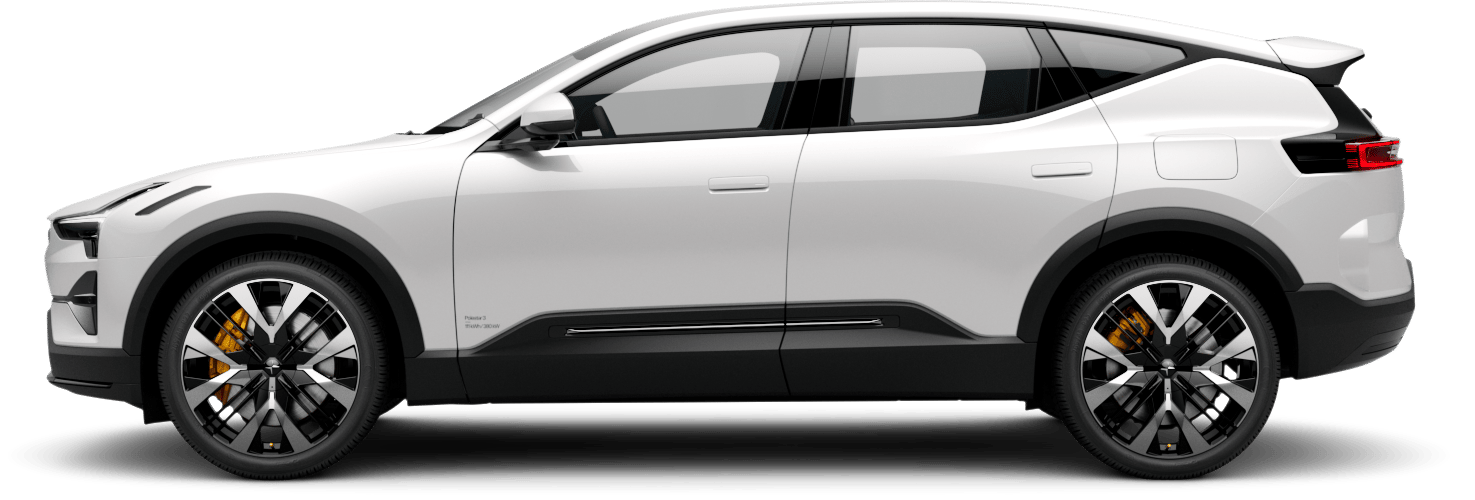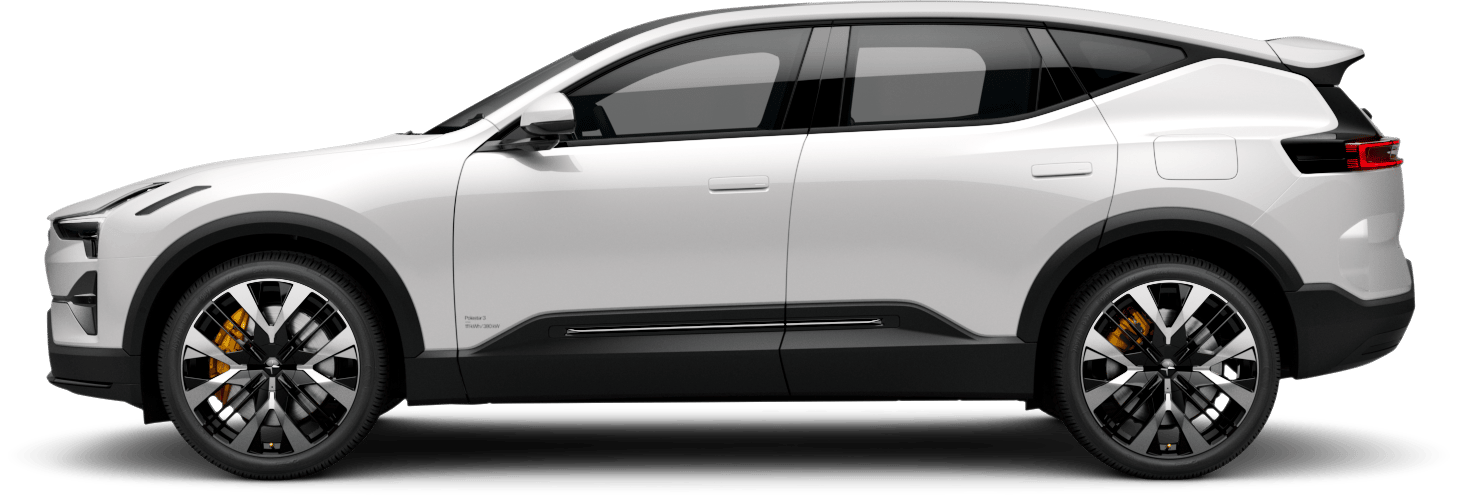Child restraints
Child restraint systems
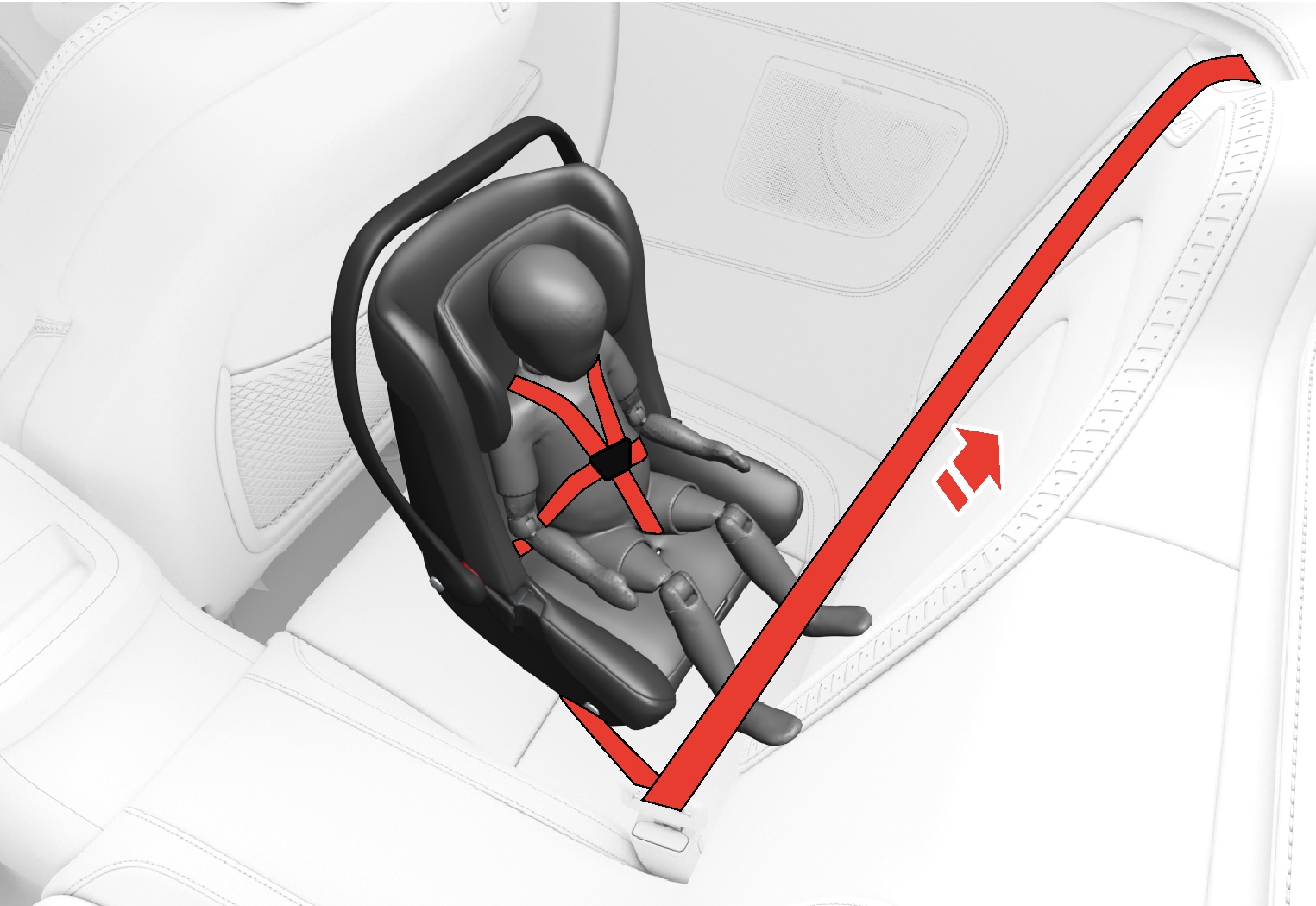
There are three main types of child restraint systems: infant seats, convertible seats and booster cushions. They are classified according to the child's age and size.
The child restraint should be secured using a three-point seat belt, ISOFIX/LATCH anchors, top tether anchors, or a combination of one or more of the above. Always follow the instructions of the child restraint manufacturer.
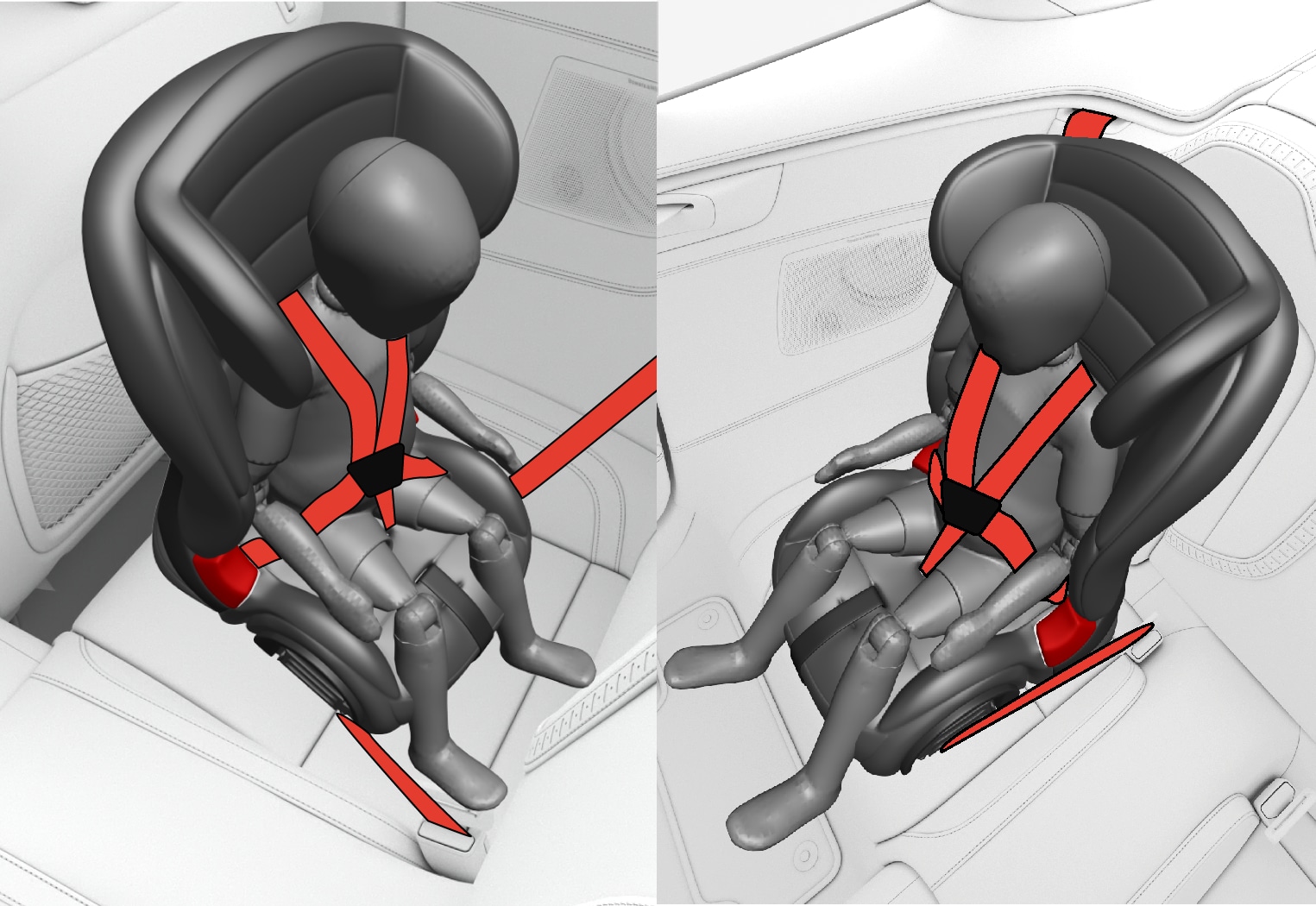
Warning
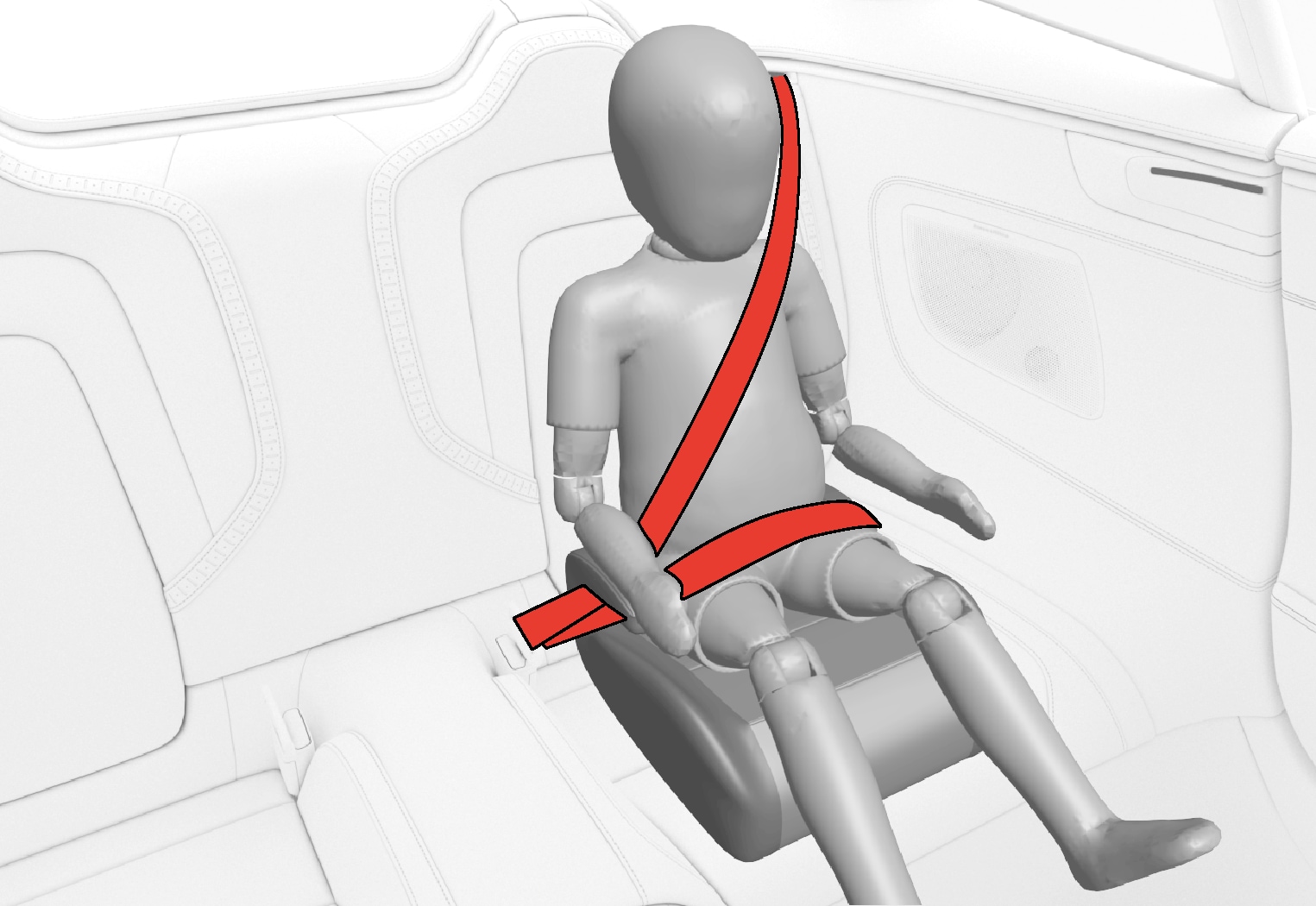
Warning
Warning
- When not in use, keep the child restraint system secured or remove it from the passenger compartment to help prevent it from injuring passengers in the event of a sudden stop or collision.
- A small child's head represents a considerable part of its total weight and its neck is still very weak. Polestar recommends that children up to age 4 travel, properly restrained, facing rearward. In addition, Polestar recommends that children should ride facing rearward, properly restrained, as long as possible.
Note
Automatic Locking Retractor/Emergency Locking Retractor (ALR/ELR)
To make child seat installation easier, each seat belt (except for the driver's belt) is equipped with a locking mechanism to help keep the seat belt taut.
When attaching the seat belt to a child seat:
A sound from the seat belt retractor will be audible at this time and is normal. The belt will now be locked in place. This function is automatically disabled when the seat belt is unlocked and the belt is fully retracted.
Warning
Child restraint registration and recalls
Child restraints could be recalled for safety reasons. You must register your child restraint to be reached in a recall. To stay informed about child safety seat recalls, be sure to fill out and return the registration card that comes with new child restraints.
Child restraint recall information is readily available in both the U.S. and Canada. Information on recalls in the United States is obtained from the government’s customer center for vehicle safety at phone number 1-800-424-9393 or at https://www-odi.nhtsa.dot.gov/owners/SearchSafetyIssues. In Canada, visit the website for child safety at Transport Canada at https://www.tc.gc.ca/en/services/road/child-car-seat-safety.html.
